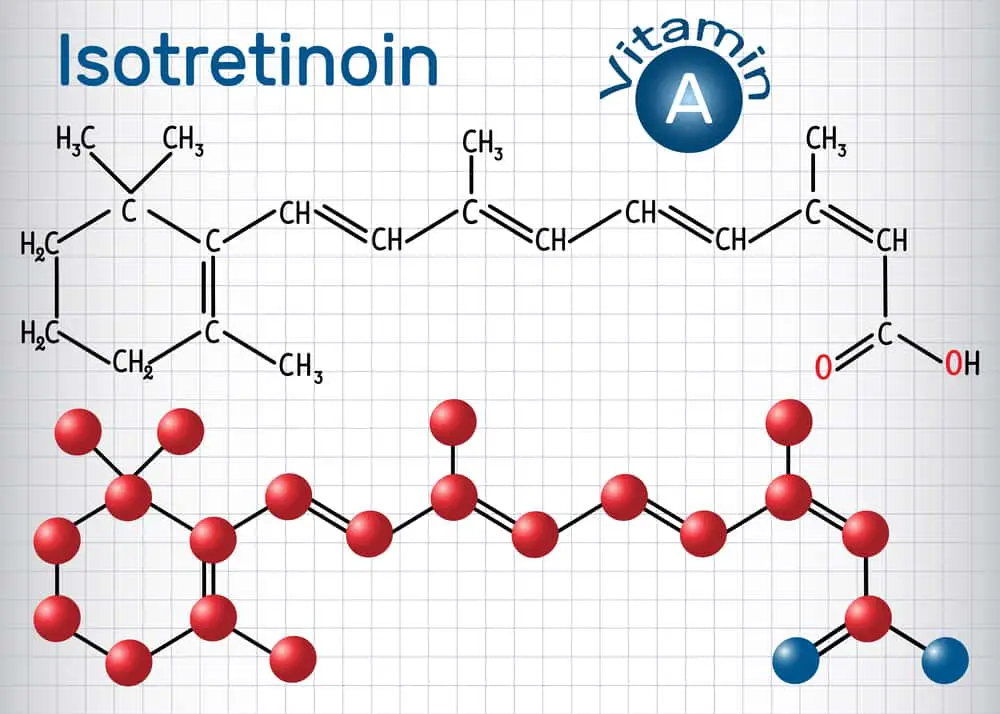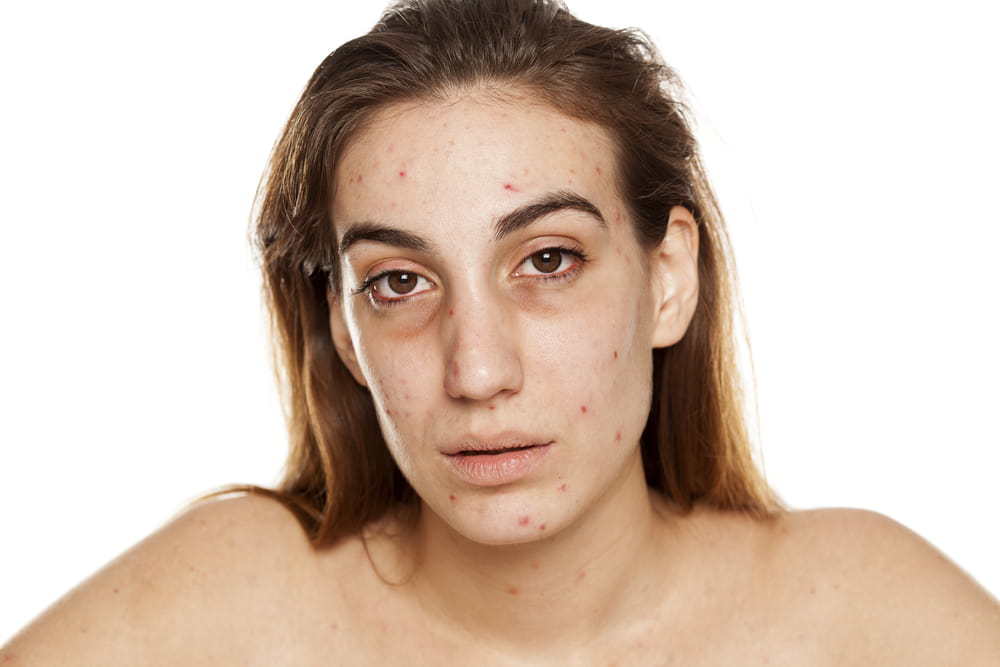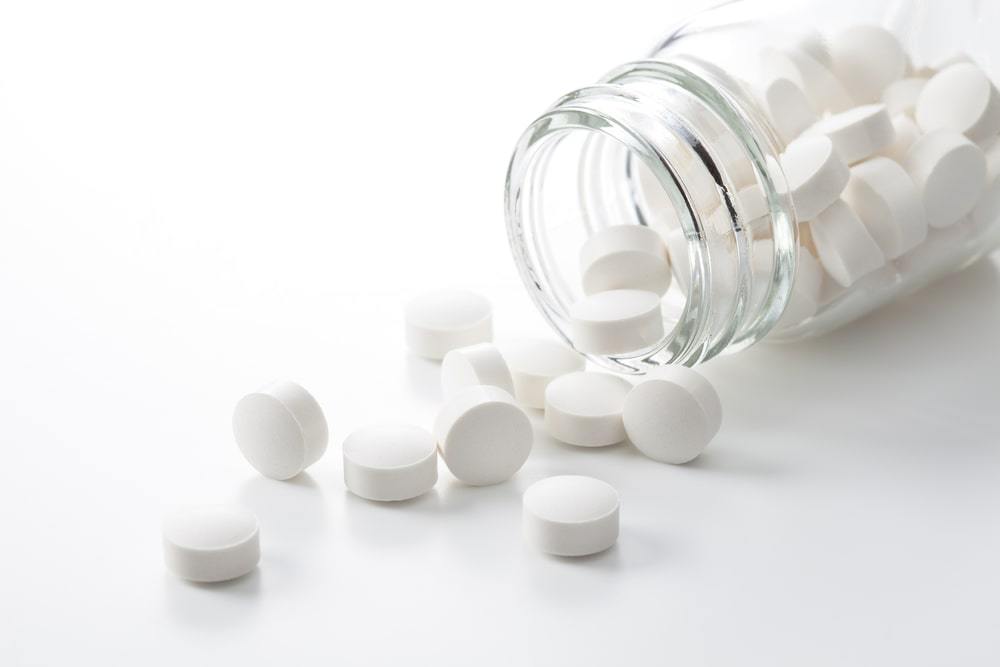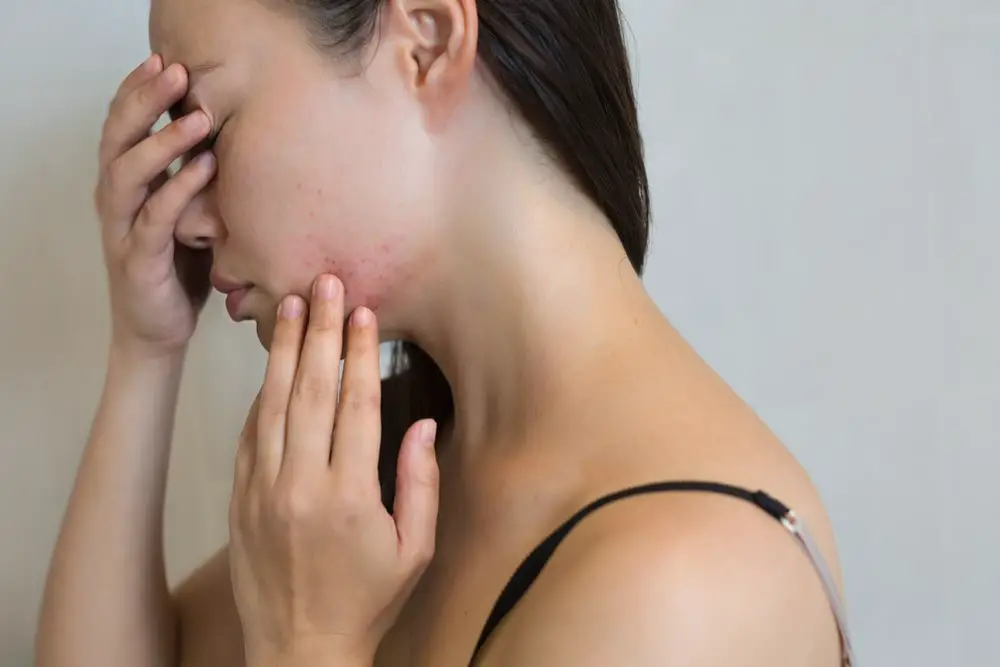Depression is a global crisis that affects people all over the world. Although external factors often cause it, we cannot say that our society has done enough to discourage depression triggers around us.
From cyberbullying to nasty comments from physical interactions, depression is not peculiar to age or race.
However true that there are different depression causes, not in a million years would you have imagined whether acne medication can cause depression. Can acne medication cause depression?
Acne is a skin condition that affects people from all over the world. Unlike other skin conditions, it is triggered by external influences on hormonal activities; hence, it does not have a cure. However, different treatments and medications are used to either reduce the effects or make it disappear.
Related Post: What causes acne?
Can Acne Medication Cause Depression?
Yes. Some acne medication does cause depression. Do note, though, that not all acne medication can cause depression. If it were so, drugs like that wouldn’t make it to the public view. One acne drug that is linked to depression is Accutane or Isotretinoin.
Does Isotretinoin Cause Depression And Anxiety In Acne Patients?

Isotretinoin is an oral acne medication used for treating severe acne or acne that is hard to treat. Although initially approved as Accutane and Roaccutane, the drug has been produced under different names like Zenatane, Absorica, and Isotretinoin.
Isotretinoin is a chemical derivative of vitamin A; retinol that cuts off the sebaceous glands from producing much oil as it used to. Not just this, but it also changes the cells that line the hair follicles to reduce the chances of blockage. As a result, fewer lesions will develop.
Plus, it reduces inflammation and pain for people with severe acne. When acne does return, it is usually a mild form that will be easy to treat.
Besides links to depression, Accutane dries the nasal passages and the skin, causes brittle nails, peeling skin, thinning hairs, and a host of other side effects. Apart from this, it is dangerous for pregnant women as it can cause birth defects.
On neuropsychiatric effects, a high dose of vitamin A can cause aggression, personality change, irritability, psychosis, and depression. Hence, it is understandable why it has been under the radar for so long on how it causes depression.
The cyberShrink Forum recently reported the case of a woman who reported her daughter had developed depression, suicidal thoughts, and severe anxiety after using Accutane for a while. Not just this, but the girl did not recover until after four months of the treatment.
Apart from this, researchers from the University of Texas and Bath University, UK, monitored the drug injection and compared the doses in mice and humans. The result proved that the mice demonstrated signs of depression; hence, lending further credibility to the links to depression.
Isotretinoin is administered to patients above 12yrs, and its possible link to depression led to its control. In 1998, the USFDA issued a warning of a possible link to depression to physicians. As a result, they recommended that the patients sign an informed consent form before using the drug.
Between 1982 and 2001, there were 431 reported cases of suicidal thoughts, depression, suicidal attempts, and suicide in patients who had used isotretinoin.
Over the past 30 years, patients worldwide have complained of serious side effects of using isotretinoin, besides depression. One such case is of a 17-year-old Korean boy who behaved oddly while taking the drug but improved when he stopped. However, he started acting strange again after starting the drug leading many to blame the drug.
Like all things medicine, it is considerably difficult to draw a parallel line between depression and Accutane. While it has shown a link to depression in some patients, it has shown no proven link in others. The reason is that we have individual ways we respond to treatment and medications.
However, to be fair, enough studies have proven that it does pose a risk of depression to some people.
One theory on this argument looks at how isotretinoin changes the hippocampus part of the brain. The hippocampus is responsible for creating neurons through neurogenesis.
However, studies in rats and mice showed a reduction in the hippocampus while taking isotretinoin. Therefore, a reduction in neurogenesis may be biologically responsible for causing depression.
A 2010 study of more than 5700 isotretinoin users found that the risk of suicide was significantly highest in people that had stop treatment for six months but lowest in people who just started the medication. We can go on and on about the different arguments about whether or not isotretinoin can cause depression.
However, the black and white picture is that it is linked to depression in some people, while it isn’t linked to depression in some. Nonetheless, it is enough to conclude that, indeed, some acne medication can cause depression.
Can Acne Cause Depression?

Give a big yes to this question. Unlike acne medication that is under debate, it is a proven fact that acne can cause depression. In a world where the emphasis is on physical appearance as the seed for acceptance and yardstick for measuring beauty, it is easy to fall short of the high expectations.
People with skin diseases endure enough mental and psychological stress enough to cause depression. From simple whispers on the street to loud and direct confrontations, they know they are being judged based on how they look, and the judgment is never to their favor. As a result, it can send some unto the lane of anxiety, fear, and depression.
The narrative is usually worse for teenagers and young adults who are just making their way through life. At this point, the emphasis of the competition is usually on looks and appearance. Hence, an unsightly bump on the face can prevent you from attending parties, showing up for classes, and making friends like a normal teenager.
For adults, it can make you miss appointments, quit your job to support yourself, and make your friendships and extracurricular activities suffer.
The feeling of withdrawal and constant criticism causes emotional pain that can have devastating consequences on someone’s life.
You will hear kids get called names like crater face and other upsetting names that can cause your self-esteem to take a plunge. Apart from this, it generates anger at yourself and at the condition for not outgrowing it after a long time.
The combined effects of all the external factors can cause anxiety, fear, withdrawal, low self-esteem, and depression.
Can Acne Medicine Cause Mood Swings?
Although mood swings are not as bad as depression, it can also lead to dangerous social and mental complications.
Put simply, whatever can cause depression can cause mood swings. Since you can’t be depressed all the time, you will be happy at some point; at another point, you will be sad. In fact, sometimes, it will be pure and plain anger at yourself, the condition, and for everyone that ever made fun of you.
High doses of certain acne medicines like Accutane can cause headaches, aggression, irritability, and personality changes. The idea behind irritation is the same behind depression and anxiety.
Since acne causes a feeling of dejection and abandonment, it is considerably easy to think you are alone in the world. Hence, it is possible to fall into the trap of occasional mood swings of either depression or anger.
What Are The Side Effects Of Acne Pills?

Acne pills are not bad since they are formulated to reduce or relieve acne effects. However, although well-meaning, some acne pills react negatively with the body before providing the designed solution. Some popular side effects include:
- Topical acne side effects include skin irritation and dryness. However, most of the effects are temporary and improve as your body welcomes the treatment. Sometimes, it can cause purging or a few breakouts that will get better with time. However, you should speak to your doctor if it causes burns, skin itches, and heavy peeling.
- Oral medications can cause a more serious effect that can mess with the stomach of your internal system. For example, it can make you lightheaded, dizzy, increase sun sensitivity, or upset stomach. However, it can also cause severe side effects like difficulty breathing or shortness of breath, throat tightness, and skin rashes.
- Prescription acne treatments like isotretinoin can cause allergic reactions that may increase the risk of suicide or depression, damage organs, ulcer, or congenital disabilities.
To be safe, we recommend you report any side effects to your doctor immediately you notice them to avoid further complications.
You should know that individuals with delicate health conditions, pregnant women, virgins, and lactating mothers should not use some acne medications. Hence, you should always ask for a prescription from a doctor before using any acne pill.
Conclusion
Acne medications are supposed to make you feel better. However, some make you feel worse before ever making you feel better.
In some cases, some medications are plain bad news and should not be used. Hence, be careful about how you use acne pills and always ask for help.
Related Posts

